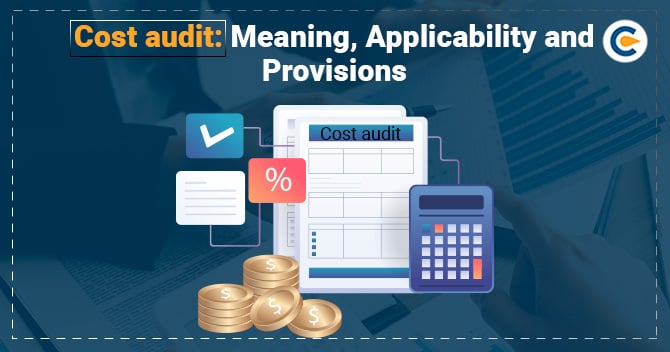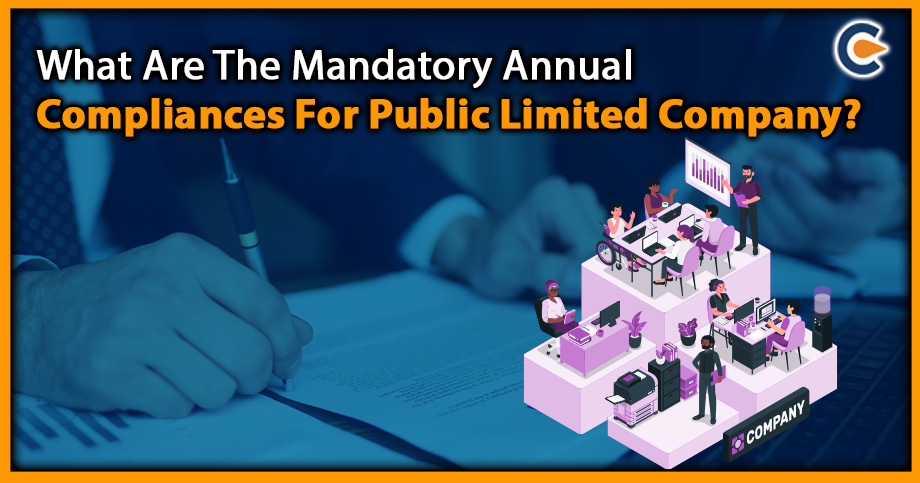Cost audit is a pivotal and continuous process that an organization must execute aptly throughout its life cycle. It primarily deals with the thorough inspection/validation of the cost records and the different accounts types. The primary goal of cost audit is to keep the tap on the company’s cash flow and mitigate errors. This write-up will disclose key aspects of cost auditing, including the legalities to be followed by incorporated companies in India.
Key Objectives of Cost Auditing
- The cost audit intends to pinpoint the undue losses or wastage and ensure that the costing system determines the realistic & accurate cost of production.
- The primary goal of cost audit is to ensure that the cost relating to production and sales encompass only those factors which are imperative and that those factors are utilized most effectively.
- To check that cost records are accurate
- To identify errors in cost account/records
- To introduce the arrangement of internal audit with a focus on costs to minimize the burden on the financial auditor
- To determine that the company have proper cost books and records either required by legislation or otherwise as managerial decision
- To check that the fundamental principle of cost accountancy or related provisions mentioned therein to implement certain statutory norms are aptly carried out in maintaining cost accounts.
Types of Cost Auditing
There are different types of cost audit processes as mentioned below:
- Auditing on behalf of the Indian Government
- Cost audit on behalf of Assist Management.
- Auditing on behalf of tribunals.
- Cost Audit for the trade association.
- Auditing under the Company’s Statue
- Trade bargains and dispute
- Cost variation within the industry
- Statutory cost audit
Applicability of cost auditing as per Companies (Cost Records and Audit) Rules, 2014
Cost Audit is a legal compulsion for:
- Every company cited in item (A) of rule 3 whose yearly turnover during the immediately preceding FY is Rs 50 crores or more.
- Every company cited in item (A) of rule 3 whose total turnover of individual products or services for which cost records are mandated to be administered under rule 3 is Rs 25 crore or more.
- Every company cited in item (B) of rule 3 whose yearly turnover during the immediately preceding FY is Rs 100 crores or more.
- Every company cited in item (B) of rule 3 whose total turnover of individual products or services for which cost records are mandated to be administered under rule 3 is Rs 35 crore or more.
Cost auditing is not a mandate for following companies falling under rule 3:
- Whose revenue in foreign exchange from exporting activities surpass 75 % of its aggregate revenue; or
- Which is functional in SEZ; or
- Which is serving the power sector and generating electricity via Captive Generating Plant
Maintenance of cost records as per Companies (Cost Records and Audit) Rules, 2014
- (1) Every company under Companies (Cost Records and Audit) Rules, 2014, regarding its FY commencing on or post the 1st April 2014, maintains cost records in CRA 1 form.
Provided that in case of the company cited in s.no. 12 and s.no 24 to 32 of item (B) of rule 3, the requirements under this rule shall be applicable regarding each of its FY commencing on or after the 1st day of April 2015.
- The cost records cited in sub-rule (1) shall be maintained regularly in a way as to render estimation of per-unit cost of production or operation cost, sale costs, and margin of each of its products & activities for every FY within prescribed timeline.
- The cost records shall be administered in such a way to enable the entity to exercise control over the different operations and costs to ensure optimum economies in resources utilization. These records shall also render relevant data needed to be intimate under these rules.
Norms under Companies (Cost Records and Audit) Rules, 2014
1. The category of companies cited in rule 3 and the maximum limits set out in rule 4, shall within 180 days of commencement of FY, appoint a cost auditor.
Provided that prior to such appointment is made, the writ permission of the cost auditor to such appointment, and certificate from him/her as cited in sub-rule (1A), shall be obtained.
2. The cost auditor under sub-rule (1) shall furnish a certificate that
- The individual or the company, as the case may be, satisfies the criteria for appointment and thus does not stands ineligible as per Cost & Works Accountants Act, 1959[1](23 of 1959) & the rules cited thereunder;
- The individual or the company, as the case may be, meets the norms cited in section 141 of the Act;
- The proposed appointment adheres to the limits set out by authority; &
- The list of cases against the so appointed cost auditor or audit company pending w.r.t professional matters of conduct, as cited in the certificate, is accurate and true.
Filing of CRA 2 form and other norms around cost auditor
- Every company under sub-rule (1) needs to file form CRA 2 for intimating authority about the auditor’s appointment within given timelines;
- Within 30 days of the board meeting in which decision for the same was approved or;
- Within 180 days of the commencement of the FY, whichever is earlier, via form CRA 2 along with the standard fee.
- Every appointed cost auditor shall continue to discharge his duties till the expiry of 180 days from the closure of the FY or till he/she furnishes the cost audit report for the FY for which he/she has been appointed.
Provided that the cost auditor under these rules may be terminated from this office before the expiration of his term, via a board resolution post rendering a reasonable chance of being heard to the cost auditor & recording the reasons for such matter in writing;
Provided further that the CRA 2 form to be filed for sharing matters relating to the appointment of another cost auditor shall affix the concerned Board Resolution to the effect;
Provided also that noting cited under this sub-rule shall hinder the cost auditor’s right to resign from such company’s office
Norms for intimating vacancy and filing of form CRA 2, CRA 3 and CRA 4
- Any casual vacancy for the cost auditor created due to resignation, death, or removal shall be filled by the BODs within 30 days of the occurrence of such vacancy & the company shall intimate the authority via CRA 2 form within 30 days of such appointment.
- The cost statements, along with other relevant statements to be affixed with the cost audit report, shall be authenticated by the BODs before they are signed by board-authorized directors for submission to the cost auditor to report thereon
- Every cost auditor who carries out a cost record audit shall furnish the cost audit report along with his observation, if any, in the form CRA
- Every cost auditor shall share his verified report to the BODs within 180 days from the closure of the FY to which the report relates & the BODs shall scrutinize such report, particularly ant reservation cited therein.
- Within 30 days from the receipt’s date of a copy of the audit report, every company falling under said rules shall facilitate the authority with such report in form CRA 4 form in prescribed format and fees.
Conclusion
The Cost auditing renders productive detail to the management relating to regulating production, efficient method of operation, minimizing overhead cost in operation, & reformulating plans for cost accounting.
Read our Article:Register of Members under the Companies Act, 2013











